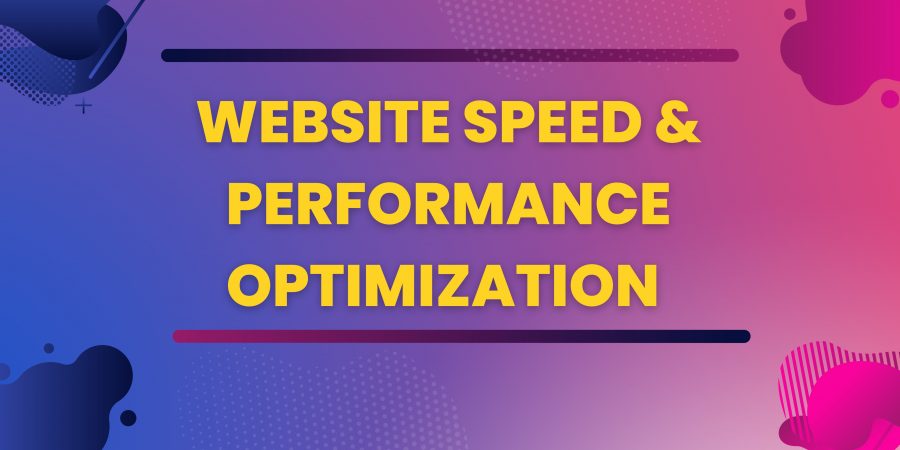PAVING THE PATH TO VICTORY: THE TRANSFORMATIVE INFLUENCE OF WEBSITE SPEED AND PERFORMANCE OPTIMIZATION ON SUCCESS
The speed and performance of a website are key factors in determining its success in the fast-paced digital world of today, where people have shorter attention spans than ever. Responding instantly is expected by users and faster websites are given preference by search engines. Due to this, website speed and performance optimisation are becoming increasingly important for both individuals and organisations.
The Necessity of Speed
User Experience (UX):
We’ve all been frustrated by a website that takes a long time to load as online users. Research indicates that when a website takes more than a couple of seconds to load, people are more likely to leave. To keep visitors on a website and turn them into customers, one needs to provide a flawless user experience. Pages that load slowly might lead to significant bounce rates, which affects the reputation of the company.
Mobile Responsiveness:
The need for websites that load quickly and are responsive has increased significantly with the popularity of mobile devices. Particularly, mobile users expect quick access to information. The importance of optimising the website for mobile devices is further emphasised by Google’s mobile-first indexing.
Search Engine Ranking:
The ranking of websites is heavily influenced by their speed, which is considered by search engines like Google. Quicker websites receive more credit for their improved exposure and greater amount of organic search traffic by being ranked higher in search results. In an era where businesses are competing for the top positions in search engine rankings, speed is especially important.
The Effect of Performance on Conversions
Enhanced Engagement:
Although engaging content is important, its effect may be reduced if consumers become impatient with long wait times. A quick website makes sure users stay interested in reading the content and engaging with business.
E-commerce Success:
The connection between speed and conversions is particularly evident for e-commerce websites. Sales can be dropped because of cart abandonment caused by slow-loading websites. For online stores to succeed, performance optimisation is essential.
Lower Bounce Rates:
Lower bounce rates are directly related to a speedier website. Users are more inclined to explore further and convert when they find a website that loads quickly and offers a smooth browsing experience.
Techniques for Website Speed and Performance Optimization
Browser Caching:
By using browser caching, one can shorten the load time for regular visitors by storing locally frequently visited page elements. For repeated visitors, this works very well at enhancing the user experience.
Content Delivery Network (CDN):
A CDN speeds up user loading times for visitors from all over the world by distributing the static assets of the website among several servers. This is very important for international businesses.
Reduce HTTP Requests:
An HTTP request is needed for every component on a web page, including scripts, stylesheets, and graphics. One way to greatly increase website speed is to minimise these requests by merging files and use effective coding techniques.
Image Compression:
Oversized images can make a page load much more slowly. Make use of image compression methods to minimise file sizes without sacrificing quality. Performance gets better overall, and page load times are improved.
Conclusion
The significance of optimising website speed and performance is of utmost importance. It has an immediate effect on conversion rates, search engine rankings and user experience. To fully realise the potential of the website in the cutthroat online market, it may be necessary to make investments in optimisation techniques and work with the best web development company in Kochi like us. In the digital world, speed isn’t just a metric; it’s a means of getting ahead.

